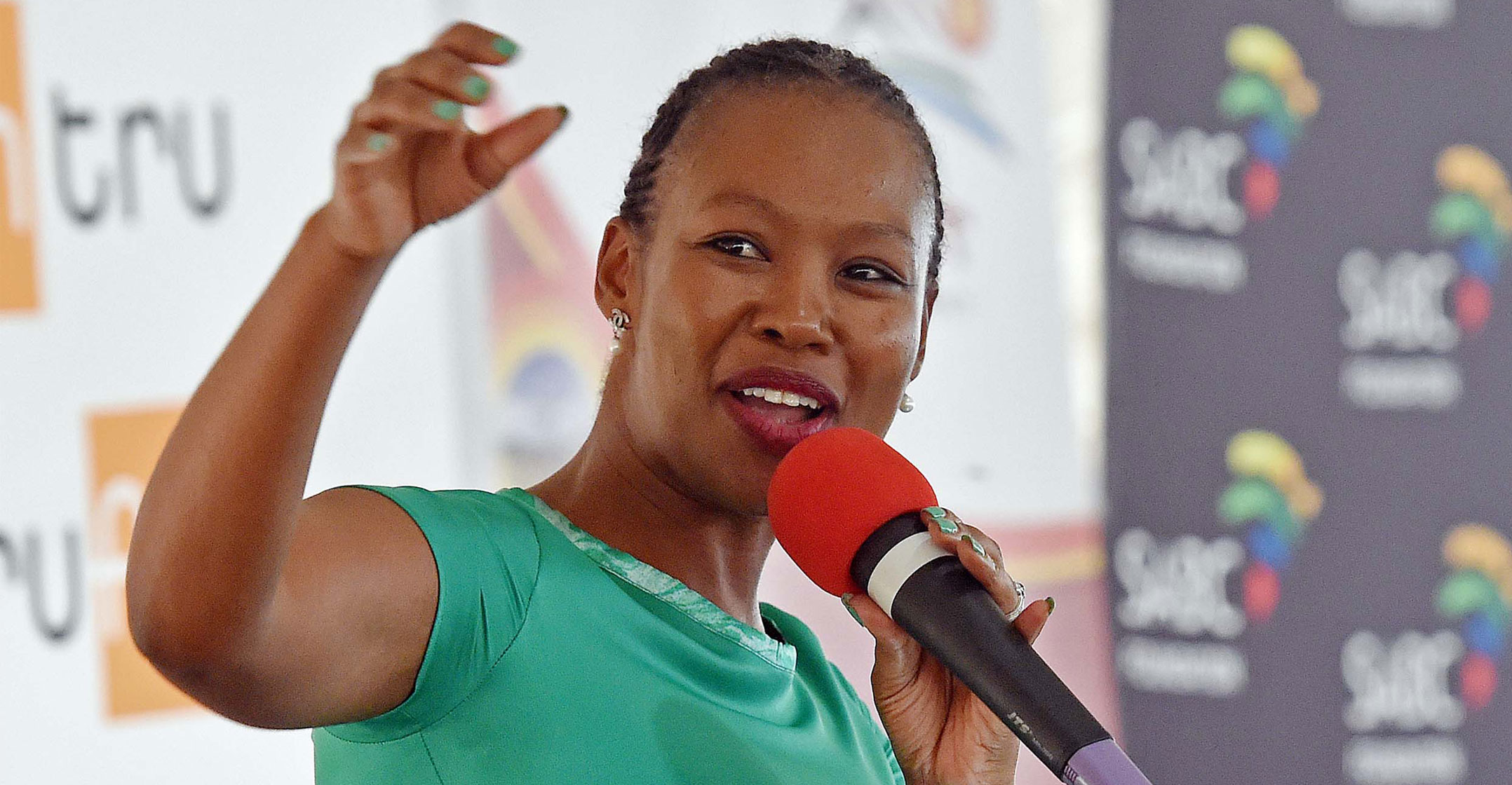
Communications minister Stella Ndabeni-Abrahams has asked the sector regulator, Icasa, to ensure that preferential access to spectrum is given to a new wholesale open-access network (Woan) in an effort to increase competition in South Africa’s mobile telecommunications market.
In a long-awaited policy direction to Icasa on the licensing of so-called high-demand spectrum, Ndabeni-Abrahams has asked the regulator to ensure that the Woan is given enough spectrum and other support to ensure its success. The good news for the incumbent operators is that Icasa will license additional available spectrum and it won’t all be assigned to the Woan, as had previously been envisaged by government. However, those given additional spectrum will have to commit to buying capacity from the Woan. (Download the policy direction here — PDF.)
“The minister recognises that there are over 400 players that hold electronic communications network service licences, but which cannot access spectrum due to its scarcity,” the policy direction reads. “This has an adverse effect on competition, contributes to the high cost to communicate and serves as a barrier to entry for new entrants and SMMEs.
“Government is committed to maximising the socioeconomic benefits derived from the use of the spectrum and recognises that a shared approach to spectrum use is necessary. The deployment of a Woan will encourage licensees to work together as far as it is practicable. The value of sharing and collaboration between licensees is that it will result in the more effective use of spectrum. Government fully supports a Woan as a means to meet the public policy objectives,” the document says.
The assignment of spectrum to the Woan and to commercial network operators must take place simultaneously, the minister says.
Given that “some incumbent operators” already have been assigned high-demand spectrum, and considering the open-access obligations imposed on the Woan, Icasa must ensure preferential treatment for the Woan in the assignment of spectrum in the 700MHz, 800MHz and 2.6GHz bands.
Ndabeni-Abrahams hasn’t made any recommendations to Icasa about how much spectrum should be assigned to the Woan, but the policy direction references a report from the CSIR, commissioned by the her predecessor, Siyabonga Cwele, which recommended that the Woan be granted the following spectrum (based on a 20% market share estimate): 2x25MHz blocks in the 800MHz band, 2x20MHz blocks in the 2.6GHz band (for so-called FDD technology) and 25MHz, also in the 2.6GHz band (for so-called TDD).
Obligations
Spectrum assigned to operators other than the Woan – so, companies such as MTN and Vodacom – must meet a number of policy objectives, the minister says. These are:
- Leasing of electronic communications networks and facilities and the provision of wholesale capacity to other licensees, including the Woan, upon request, as soon as the Woan is licensed. Icasa must perform strict regulatory oversight to ensure compliance.
- Procurement of capacity in the Woan — more details on this later in this article.
- Universal access and service obligations. These must be complied with before the assigned spectrum may be used in other areas “bearing in mind practicalities such as the unsuitability of certain high-band spectrum for rural areas”.
- A single entity may not control the spectrum.
- Compliance with empowerment requirements.
Icasa must issue an invitation to apply for a network licence for the Woan. “The authority should licence spectrum to the Woan in a manner that enables it to fulfil its policy mandate and to thrive,” the policy direction says.
The Woan should provide wholesale open access to its partners and any licensed entity that requests access. This must be done on terms that are “effective, transparent and non-discriminatory”.
 The Woan must be at least 70% owned by South Africans and must comply with empowerment requirements set out in the Electronic Communications Act. It must also include diversity of ownership to ensure “meaningful participation of all entities involved, including SMMEs, and to prevent monopolistic behaviour”. It may include public entities as shareholders but the Woan itself may not be a public entity as defined under the Public Finance Management Act.
The Woan must be at least 70% owned by South Africans and must comply with empowerment requirements set out in the Electronic Communications Act. It must also include diversity of ownership to ensure “meaningful participation of all entities involved, including SMMEs, and to prevent monopolistic behaviour”. It may include public entities as shareholders but the Woan itself may not be a public entity as defined under the Public Finance Management Act.
The policy direction says Icasa must consider giving the Woan a reduced spectrum application fee that covers only administrative costs. Also, it should enjoy either reduced or waived spectrum fees for at least 10 years.
Other operators that are granted high-demand spectrum – which will be allocated using a method determined by Icasa – must buy at least 30% of their national capacity from the Woan to support it for a period of at least five years. “The percentage to be procured by each licensee may be proportionate to the amount of high-demand spectrum assigned to such licensee.”
Finally, Ndabeni-Abrahams says the assignment of spectrum suitable for next-generation 5G networks will be held in abeyance until after the International Telecommunication Union’s Radiocommunication Conference (WRC-19) taking place at the end of the year.
However, Icasa must investigate and report to the minister on the spectrum requirements for 5G. This report must be finished within six months of the conclusion of WRC-19, after which Ndabeni-Abrahams will issue a separate policy direction.
“The investigation should cover the affected bands (both those below 6GHz and the so-called millimetre-wave bands) and the implications of the licensing of these bands on competition and the current structure of the mobile market.” — © 2019 NewsCentral Media

